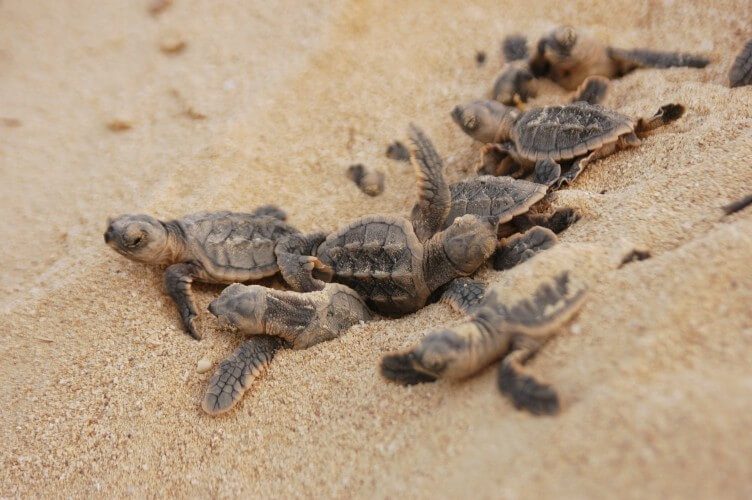Hawksbill turtles are currently classified as Critically Endangered by the IUCN, the global authority on the status of the natural world.
The first hatching of the endangered hawksbill sea turtles in Qatar was recorded in Fuwairit Beach on Sunday, Qatar’s ministry of environment announced.
“First hatching of hawksbill sea turtles at Fuwairit Beach recorded,” the ministry said on Twitter, just a day after World Environment Day.
First hatching of hawksbill sea turtles at Fuwairit Beach recorded#MME #Qatar pic.twitter.com/Meurpq69rA
— وزارة البلدية | Ministry Of Municipality (@albaladiya) June 6, 2021
The Protection and Wildlife Department has applied immense effort into ensuring the little sea turtles return to sea safely after their hatching, with several experts assigned to monitor the progress and record data for future research purposes.
So far, 92 turtle nests were moved to the protected site at Fuwairit Beach to monitor the hatching, the ministry announced.
Head of the department, Taleb Khaled Al Shahwani, and his team released 53 hawksbill sea turtles to safely to sea after recording the needed data to ensure their welfare and preservation.
Read also: France drops quarantine for vaccinated travellers from Qatar.
Hawksbills are critically engaged sea turtles belonging to the family Cheloniidae. They are mainly threatened by the loss of nesting and feeding habitats, excessive egg collection, fishery-related mortality, pollution, and coastal development. Wildlife trade also play a significant role in their endangerment.
The turtle’s mating process takes place every two years, with the nesting beginning in late March to early April. Females leave the sea and look for suitable nesting grounds, then the eggs hatch two months after they are laid. After hatching, young turtles rush instinctively towards the sea to begin their life journey.
The turtles nest in different locations around Qatar, including Fuwairit, Lehwaylah, Ras Laffan, Al Ghariyah, Al Maroona, Al Mafeer, Haloul, Sharaawah, Rukn islands, and Umm Tees. The most commonplace for hatching, however, is said to be Fuwairit, given its atmosphere and soft sand.
To ensure the nesting process remains successful, the ministry of environment carries out various activities throughout the year to conserve the sea turtles. The ministry also closes Fuwairit beach to the public during nesting season to closely monitor the turtles and protect them from any harm, given their importance to the region’s ecosystem.
Funded by Qatar Petroleum, the protection project is being undertaken by the Environmental Science Center at Qatar University with the ministry’s supervision.
It covers the country’s northeastern beaches (Ras Laffan, Al-Huwaila, Jassassiya, Maroona, Fuwairit, and Al-Mfier), the ministry added.
Follow Doha News on Twitter, Instagram, Facebook and Youtube







